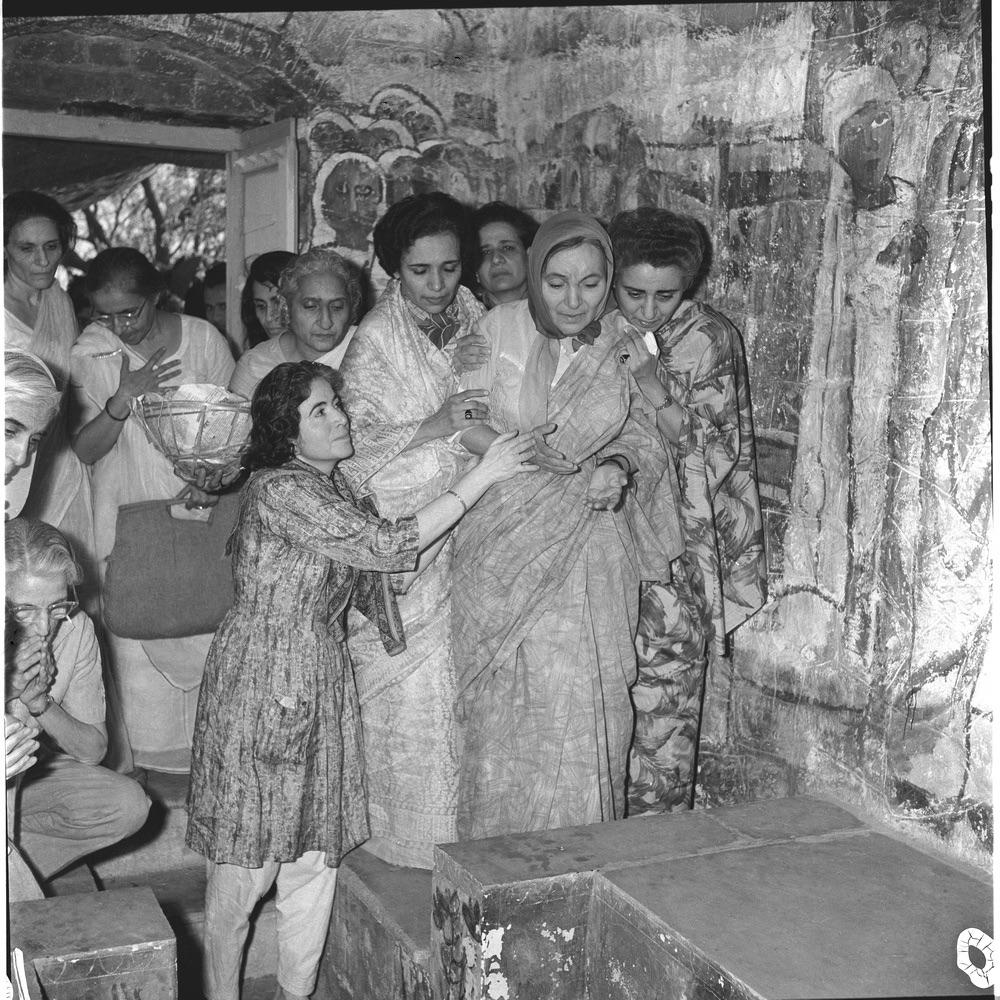
January 29, 2021
Mehera’s Fortitude
The account of Baba dropping His body and the events leading up to it were full of contradictions, intense suffering and shock. He had hinted of a time when His physical body would no longer be present, but absorbed in His intimate companionship, the Mandali could never have imagined the prospect and meaning of an event of such enormous proportions. In the middle of the vortex of agony was Mehera, who Baba called His very breath. What happens to the breath when the Beloved’s body ceases to exist?
In 1968, Baba put His two forefingers together and said to Mehera, “We will always be together, you and I.” A few days later He went on to add, “When I come next time, I will bring you with me.” In the same year, Baba came to the verandah at Meherazad and said, “I’m thinking of resting for 700 years.”* He had indicated that His work was complete, and that the time had come. He had also reminded His close ones that He was not the body. Simultaneously, in His unfathomable ways, He had promised to give darshan in April of 1969 to many of His young ones.
On the morning of January 31, 1969, Mani delivered Baba’s last message to Mehera: “Mehera, Baba says be brave.” A few hours later at noon, with a fierce spasm Baba dropped His body. After the initial doubt, a realization dawned that Baba was really gone. The room was filled with the cacophonous cries, wails and shouts of disbelief. Across from Baba’s bed, Mehera sat absolutely stunned, with not a single teardrop in her eyes–half dead. When her tears started to flow, her weeping did not stop for months.
In 1927 Meher Baba had chosen the site of His entombment on Meherabad Hill. Once arrangements were made in Meherabad, Baba’s body was brought on an ambulance from Meherazad for its final sojourn. Mehera changed into her sari, all but mechanically. As the women’s car climbed up Meherabad Hill, the moon was rising, and the sun was setting. Mehera cried, “Baba darling, come back,” she said over and over again. “How can I live without you?” How could she? She had been held close in the most sacred cocoon of His love. She was the purest drop, having lost all of itself in the ocean of His love.
As the news spread to Arangaon and Ahmednagar, pilgrims began to arrive to behold His form for the last time. Walking up the hill, the only sound they heard was the wind carrying the wailing of Mehera’s voice that pierced their own aching hearts. Mehera did not want to leave the tomb. “Baba is here, I must be with him, wherever he is.” Endless requests from Eruch and Mani were of no use. Finally, the thought that Baba’s bedroom in Meherazad would be dark and would need light, made Mehera leave His side at midnight.
For the next seven days, Mehera nursed Baba, being appalled by His rose-like body on ice in the dirt of the earth. She went into the crypt and wiped off the sawdust from HIs feet, then she tied a scarf around His neck to protect it from the harshness of the ice. She held out her arms to Him, kissed Him and clutched His feet, shaking them, as if for Him to wake up to take her with Him. But during this time, concurrent to the inconsolable grief, something else was unfolding; call it grace, love or the fulfillment of a promise. Mehera showed an uncanny fortitude in relating to the pain and loss of His lovers who came. To the crying pilgrims she said, “Don’t cry. Baba is here [pointing to their hearts]. Baba has not gone. He is still with us.”
His female counterpart lived twenty years after her Beloved. For some she was the physical symbol of Baba’s advent. Holding her hands was to hold the very hands that He had held with the utmost love that creation had to offer. To rise to such love is every lover’s humble wish. And rise, she did: with acceptance, fortitude and bravery. Over time, Mani gathered what Baba had gifted Mehera with His last order. “I later realized he was not asking Mehera to be brave–he was giving her the courage to be brave,” she said. “That’s why,” she added, “When Baba says love me, he is not asking love from us, he’s giving us the love to give him.” **
*Mehera Meher, pgs. 453-454
**Mehera Meher, pgs. 490-498